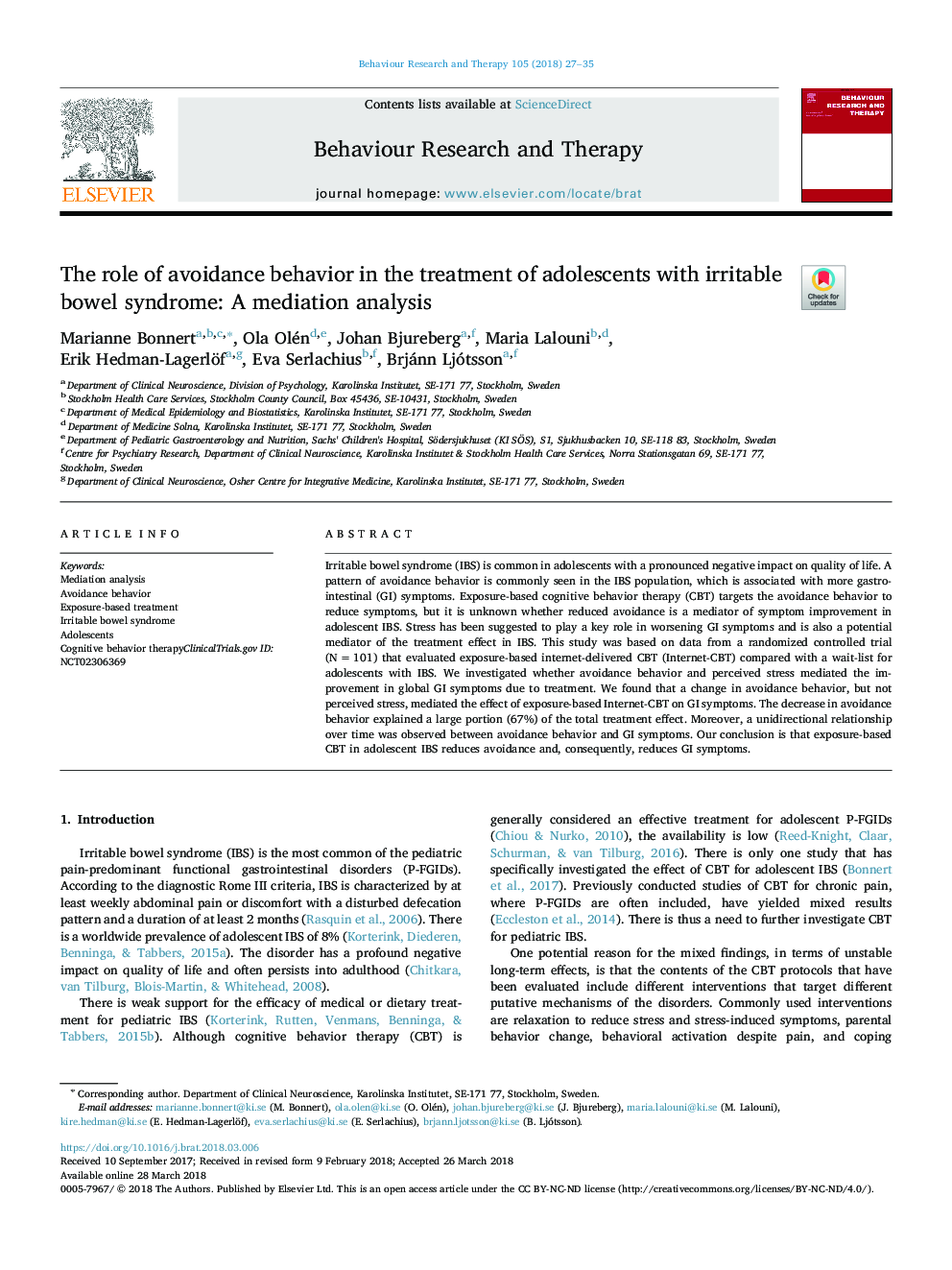| Article ID | Journal | Published Year | Pages | File Type |
|---|---|---|---|---|
| 7261808 | Behaviour Research and Therapy | 2018 | 9 Pages |
Abstract
Irritable bowel syndrome (IBS) is common in adolescents with a pronounced negative impact on quality of life. A pattern of avoidance behavior is commonly seen in the IBS population, which is associated with more gastrointestinal (GI) symptoms. Exposure-based cognitive behavior therapy (CBT) targets the avoidance behavior to reduce symptoms, but it is unknown whether reduced avoidance is a mediator of symptom improvement in adolescent IBS. Stress has been suggested to play a key role in worsening GI symptoms and is also a potential mediator of the treatment effect in IBS. This study was based on data from a randomized controlled trial (Nâ¯=â¯101) that evaluated exposure-based internet-delivered CBT (Internet-CBT) compared with a wait-list for adolescents with IBS. We investigated whether avoidance behavior and perceived stress mediated the improvement in global GI symptoms due to treatment. We found that a change in avoidance behavior, but not perceived stress, mediated the effect of exposure-based Internet-CBT on GI symptoms. The decrease in avoidance behavior explained a large portion (67%) of the total treatment effect. Moreover, a unidirectional relationship over time was observed between avoidance behavior and GI symptoms. Our conclusion is that exposure-based CBT in adolescent IBS reduces avoidance and, consequently, reduces GI symptoms.
Keywords
Related Topics
Health Sciences
Medicine and Dentistry
Psychiatry and Mental Health
Authors
Marianne Bonnert, Ola Olén, Johan Bjureberg, Maria Lalouni, Erik Hedman-Lagerlöf, Eva Serlachius, Brjánn Ljótsson,
